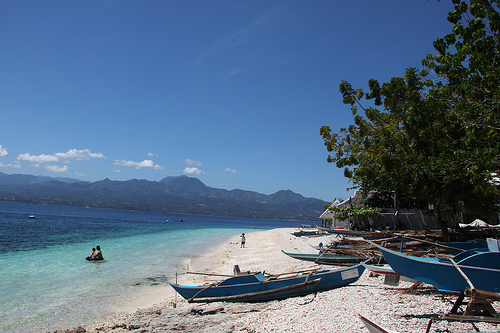The Philippines, a group of 7,107 islands, has become a popular expat destination for people from all over the world because of its beauty, climate, modern infrastructure, standards of living and safety measures. Moreover, the cost of living in this country is relatively low compared to western countries. Many people from the US, Canada, Australia and Europe have moved to this Island country to open up their business, seek employment or retire.Before making the decision to move anywhere, it is important to learn about the immigration laws and paperwork. Below are some of the basics of immigration law in the Philippines.
Visa Authorities
All foreign nationals who plan to move to the Philippines should apply for a visa at the Consulate or Embassy in their place of residence before entering the country.
The Department of Labor and Employment is responsible for making sure that foreigners in the Philippines conduct their business and other transactions within the approved time frame.
Passports and other travel-related documents are checked by the immigration department officials on arrival and exit.
Admission
Like in most countries, a passport should be valid for at least six months beyond the expected end of your stay.
The Filipino authorities have granted visa exemptions to citizens of around 157 different countries. People of certain nationalities can enter the country without applying for a visa beforehand. They also have permission to stay for a certain number of days.
You can find a list of these countries here: https://en.wikipedia.org/wiki/Visa_policy_of_the_Philippines
Visitors who wish to stay in the Philippines for a longer period of time have to apply for and obtain a visa before traveling.
A person who has been admitted into the Philippines as a non-immigrant cannot stay on permanently. In order to be permanently admitted, the person must depart from the Philippines voluntarily and procure a visa before completing other formalities like undergoing an exam.
Types of Visa
There are many different types of visa issued by the authorities of the Philippines to foreigners who wish to visit or stay in their country. These are:
– Temporary Visit Visa
– Transient Visa
– Seaman’s Visa
– Treaty Trader/ Investor Visa
– Diplomatic Visa
– Student Visa
– Employment Visa (Prearranged)
– Special Non-Immigrant Visa
– Multiple Entry Special Visa
– Special Resident Visa
The documents required for each type of visa vary significantly. Foreigners should find out which type of visa applies to them and their situation prior to submitting their application.
Five types of Special Resident Visa can be issued:
– Special Investor’s Resident Visa
– Visa of Special Investors Resident in Projects related to Tourism & Tourism Establishments
– Special Investors Retirees Visa
– Subic Special Investors Visa
– Subic Special Retirees Visa
Permanent Resident Visa for Foreigners Married to Filipino Citizens
Under the Philippine Immigration Act of 1940, any foreigner is eligible for a permanent residency on the basis of marriage to a citizen. In order to qualify for this visa, the applicant has to prove that:
– The marriage to the Philippine citizen is valid and is recognized under the existing laws of the country
– There are no records of any derogatory information against them in any law enforcement agency
– They have not been afflicted with any dangerous or contagious disease
– They have adequate financial resources to support themselves and their families
– They were allowed to enter the Philippines and authorized to stay by the relevant authorities
It is important to note that Permanent Resident Visas are only made available for citizens of those places which grant similar privileges to Filipino nationals. For a list of countries that have a reciprocity agreement with the Philippines, take a look at http://www.immigration.gov.ph/faqs/visa-inquiry/permanent-resident-visa
According to The Philippine Immigration Act of 1940, “quota immigrants” of a single nationality can be admitted into the Philippines for no more than 50 days in a calendar year. There are no such restrictions on “non quota immigrants”.
Laws stipulated by the Bureau of Labor & Employment have been put in place to protect the rights of foreign workers.
Those are the basics; however, the immigration laws in the Philippines are rather complicated and it is best to seek expert advice when applying for a work or residency visa.
Can we improve this article? Something wrong? Let us know in the comments.

